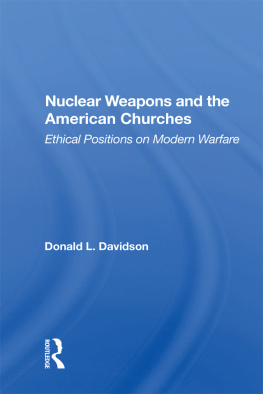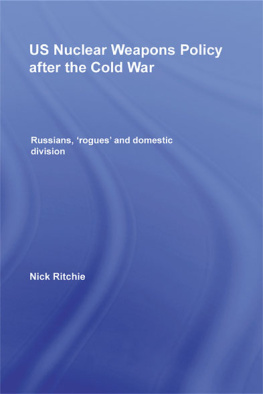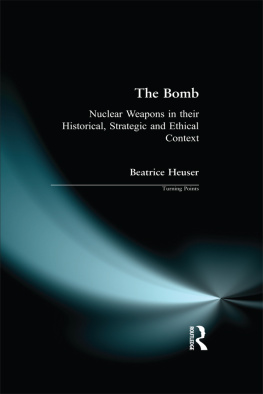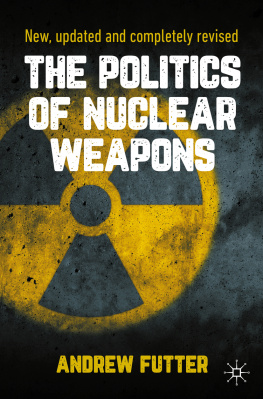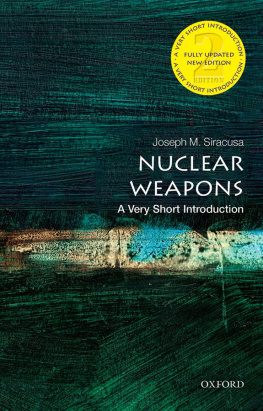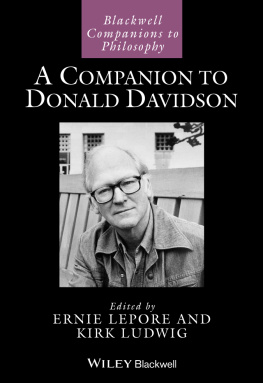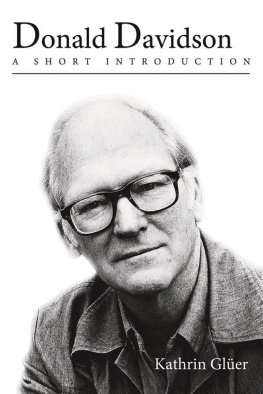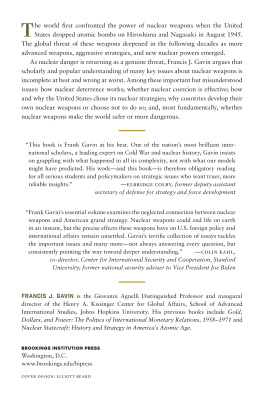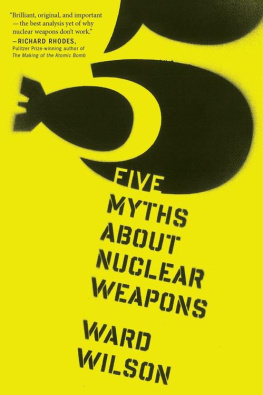Nuclear Weapons and the American Churches
"Not to promote war, but to preserve peace"
PREPARED UNDER THE AUSPICES OF THE STRATEGIC STUDIES INSTITUTE U.S. ARMY WAR COLLEGE CARLISLE BARRACKS, PENNSYLVANIA
Nuclear Weapons and the American Churches
Ethical Positions on Modern Warfare
Donald L. Davidson
Chaplain (Major), United States Army
First published 1983 by Westview Press, Inc.
Published 2018 by Routledge
52 Vanderbilt Avenue, New York, NY 10017
2 Park Square, Milton Park, Abingdon, Oxon OX14 4RN
Routledge is an imprint of the Taylor & Francis Group, an informa business
Copyright 1983 Taylor & Francis
All rights reserved. No part of this book may be reprinted or reproduced or utilised in any form or by any electronic, mechanical, or other means, now known or hereafter invented, including photocopying and recording, or in any information storage or retrieval system, without permission in writing from the publishers.
Notice:
Product or corporate names may be trademarks or registered trademarks, and are used only for identification and explanation without intent to infringe.
Library of Congress Catalog Card Number: 83-50552
ISBN 13: 978-0-367-01550-3 (hbk)
The preparation of this study has extended over three brief tours of duty at Harvard University, the Army Chaplain School, and the Army War College. Formal research for the project commenced in December 1981 when Kermit D. Johnson, then Chief of Chaplains, U.S. Army, requested that I prepare an indepth research paper objectively describing the just-war tradition and the current positions of American religious denominations on nuclear weapons and policies. When Patrick J. Hessian succeeded Chaplain Johnson as the Chief of Chaplains in 1982, he urged me to complete the study. Neither Chaplain Johnson nor Chaplain Hessian has sought to influence my opinion or the specific conclusions I have reached. They have, however, provided the encouragement and support essential for the completion of the document.
Originally I intended to describe the positions on nuclear weapons held by each major religious body in the United States. To assist in the research and to allow the denominations to speak for themselves, I sent a letter requesting information from sixty-six different groups (attached as Appendix A). This letter was addressed to all denominations with membership of at least 100,000, plus a few smaller groups like the historic peace churches. Included on the mailing list were Catholic, Protestant, Orthodox, Jewish, Morman, Christian Scientist, and other bodies less traditional in American culture. I am grateful to each of the forty-one denominations who responded to my request. The aggregate membership of the denominations discussed in the text is well over one-hundred million.
I have not, however, addressed the positions of all groups. None of the larger Eastern Orthodox churches or black denominations replied to my request for information. My Investigation suggests that these groups have not commented extensively (if at all) on the moral issues of nuclear weapons. Jewish positions are covered only briefly because these bodies have published few official statements. Space and time limitations have also prevented discussion of some of the smaller groups who did send Information. Though I attempted to be fair, I have occasionally criticized points in the positions I have discussed. This fact should not obscure my appreciation for the assistance given to this research and to the nation as we collectively reflect on the moral Issues of war in the nuclear age.
Several persons have critically examined my work. The text has been improved because of the observations of Arthur J. Dyck, James T. Johnson, Ralph B. Potter, Paul Ramsey, Michael Walzer, and Brother David Austin. Others who have contributed through advise and argument include colleagues Reynold B. Connett, Richard Tupy, Donald E. Lunday, Otto P. Chaney, John F. Scott, Albert P. Holmberg, Robert G. Chaudrue, and Henry G. Gole. As I have not always accepted their criticism, however, I alone am responsible for the deficiencies of the text. I am especially thankful to Connie Warner who prevailed over many changes in preparing this manuscript.
Most of all I am indebted to my lovely wife, Joyce, and my dear children, Karlsa, Alatha and Creighton. With patience and love they have endured my absences and intemperate moods during these months of research and wr i t i ng.
Donald L. Davidson
17 May 1983
Since the late 1970s a new debate on nuclear weapons has emerged in the democracies on both sides of the Atlantic. Signs of a significant level of concern about these weapons also exist in the Eastern bloc and Third World nations. The controversy challenges International alignments, military strategy, economic policies, and traditional moral views on war. Leaders in the anti-nuclear movement include politicians, scientists, physicians, academicians, and religious officials. in the United States an elaborate network consisting of new organizations and revived Vietnam War protest groups has developed. Perhaps the most visible element of the new movement is the national freeze campaign.
There is little question, however, that concern ranges far beyond the formal protest organizations; the new controversy has become "politicized," or "democratized." Earlier disputes over nuclear policies were confined largely to policymakers, "think tank" strategists, and academic ethicists. Currently, by contrast, policy questions are being raised by broad segments of the population. The present debate has prompted a large percentage of Americans, including soldiers, to rethink their views on the development, deployment, and use of nuclear weapons. Fundamental questions are being asked about the morality and feasibility of war in the nuclear age. The central issue is how to protect and preserve values worth defending while preventing nuclear war.
Of the various organizational proponents in the contemporary nuclear debate, religious denominations have by far the largest number of constituents. Well over a hundred million Americans are members of the Roman Catholic Church and the major Protestant churches. Therefore, positions advocated by ethicists, denominational leaders, and policymaking bodies of the prominent religious groups are significant. Potentially, at least, the collective positions of the churches represent the most powerful Influence on moral opinion in the United States. And, clearly, the churches view war and nuclear weapons as moral issues.
Religious denominations in America and the West have held diverse views on the morality of war. The position supported by the majority, however, has been that of the just-war tradition. Around 400 A.D. the African bishop remembered is Jesus' command at his arrest for Peter to put away his sword rather than forcefully resist (John 18:11).
The majority of pacifists do not deny that aggression and violence should be resisted. The means they approve, however, are nonviolent. The pacifist tradition is continued today in the historic peace churches--Quakers, Mennonites, Brethren and others. Since World War II an increasing number of Catholics and Protestants have also adopted the pacifist position.



